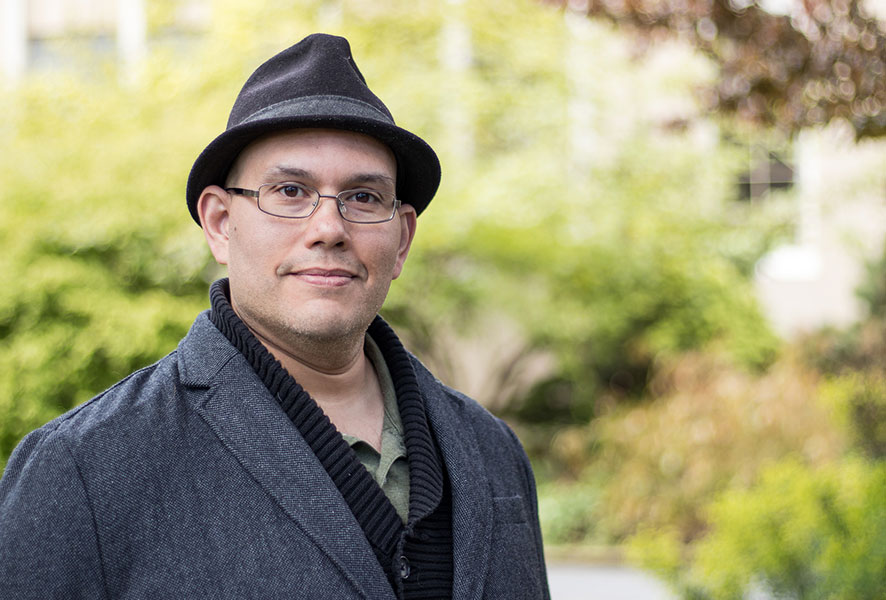

Justin Ameida, '20
Master of Divinity
School of Theology and Ministry
After earning his undergraduate degree in philosophy and theology, Justin Almeida went on to work in television and non-profit management industries, and served in the Peace Corps in Romania. In his search for a seminary to attend, the School of Theology and Ministry (STM) offered a mix of rigorous academics and deep formation with an “in the world” approach to theology in praxis. For Justin, pursuing the Master of Divinity degree enabled him to complete his ministry education within his Unitarian Universal denomination.
Formation through academic rigor and ministerial praxis have shaped and enlivened Justin’s journey at the School of Theology and Ministry. In the classroom, Justin recognizes that each class comes with an “ah-ha!” moment that challenges him to further integrate and embody the theology, care, and justice he pursues. One such meaningful classroom experience for him came from Dr. Erica Martin’s course on Hebrew Scriptures. In class, the term “preach against the text” challenged him to consider and deeply engage possible disagreements he may have with parts of scripture.
He recounts, “Dr. Martin allowed safe space for struggle with the Hebrew Scriptures; to wrestle with the dynamic tension between the past and present, tradition and the moment, historicity and revelation. This radically changed my orientation to and interaction with sacred texts. It has aided my chaplaincy with youth who are incarcerated, as well as in my biblical teaching with my congregation, making the spiritual writings of humanity much more relatable to my and others’ human experience.”
For his contextual education internship, Justin worked at the King County Juvenile Detention Center through the Youth Chaplaincy Coalition, a program within the Church Council of Greater Seattle. He was trained as a youth chaplain to work with youth experiencing incarceration and to help with weekly worship services.
Justin highlights the pastoral care skills course and the ministerial theological integration course as core experiences that provided him with a foundation for his work with incarcerated youth. These courses helped him to encounter the youth with a spirit of acceptance and compassion.
He says, “I was able to grow in my spirituality and capacity of pastoral care, while also challenged to meet the complicated life experiences of these youth with an ethic of agape and healing. I couldn’t have done the work without the skills learned in my STM classes! Their unique focus on social ministry and practical theological application is a benefit to anyone who is looking to be on the front lines of pastoral care and 21st century religion.”
Photography provided courtesy of the School of Theology and Ministry